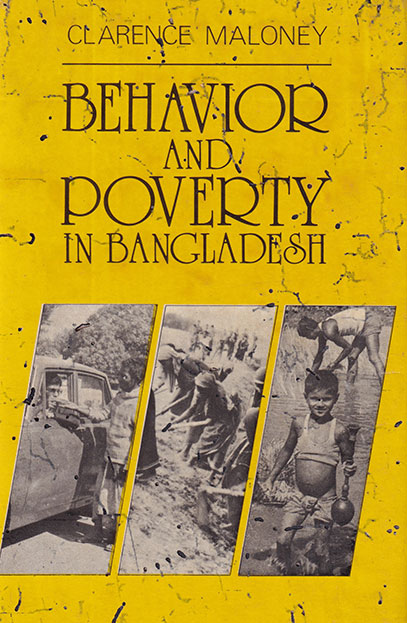
- Shop
- Social Sciences
- Behavior and Poverty in Bangladesh
Behavior and Poverty in Bangladesh
https://uplbooks.com/shop/9840511475-behavior-and-poverty-in-bangladesh-6303 https://uplbooks.com/web/image/product.template/6303/image_1920?unique=56f7a2e
| Language: English |
Tags :
Book Info
There have been many explanations of the economic and social situation of Bangladesh from the viewpoint of economics, resources, population growth, and to some extent from history. But this is the first time that people’s behavior has been shown as an important cause. Dr. Maloney does not deny the economic and demographic explanations. But he says that behavior is the raw material which produces these economic and social phenomena. Nobody has tried before to identify specific qualities of behavior that cause persisting poverty in so large a part of the population. This cannot be done just with questionnaires and statistics, and since it is rather subjective it is open to criticism. Dr. Maloney has been bold in his observations, but also sympathetic to the Bengali tradition and to Bangladeshis as a people. He does not impose a foreign-based stereotype on the people but sees the inherent strengths and advantages of the pattern of society, as well as its failure to adapt to develop solid 20th-century institutions. He finds that the pattern of interpersonal behavior inhibits the building up of solid institutions which are necessary for all-round development. Dr. Maloney is prepared to see some readers disagreeing with his observations, and he hopes to see Bengali scholars come forward then with further ideas on the fundamental causes of persisting poverty in Bangladesh. The conclusion suggests some scenarios which might take place in Bangladesh in the next few decades, as intense pressures of different kinds build up. The conclusion is far-reaching in its implications.

Clarence Maloney
Dr. Clarence Maloney grew up in South India, in a missionary family. He took his Ph.D. in South Asia regional Studies and anthropology from the University of Pennsylvania and has taught anthropology and Asian studies at American universities for 10 years. He has lived in Bangladesh for 9 years, first as a visiting professor at Rajshahi University, in the Institute of Bangladesh Studies, and then working in a variety of development projects in rural credit, rural industries, population, cooperatives, local government, area planning, and evaluation. He recently also worked in India, Pakistan, Indonesia, and the Maldives. He is the Consulting Associate for South Asia for the Universities Field Staff International (Indianapolis).


